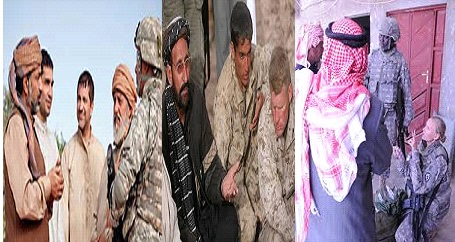
It’s difficult to know how important Interpretation and Translation are in the military until you share with a colleague serving in the military, read in the internet or be personally involved in a military operation in the foreign land.
This is more so in the foreign land as it was the case with American military campaign in Iraq and Afghanistan respectively.
To a civilian who has never engaged in military campaigns, it may be difficult to comprehend the pivotal role that translation and interpretation play in the country’s military. However, without the two, the military cannot execute its duties properly.
The user manuals of military equipment and machinery all rely on translation for effective use by the military personnel. When giving guidelines on how a particular weapon is operated, the manufacturing company has to utilize translators to ensure that the manuals are translated into different languages. Improper translation in the manuals can lead to a disaster in the military facilities or in the usage of the ammunitions. Poor storage of weapons for example led to a catastrophic explosion in a military facility in Congo Brazzaville that claimed hundreds of lives.
When different armies are conducting military drills, they utilize the services of interpreters for its success. The American army named “African lion 15” for example in Morocco has hired interpreters and translators fluent in English, Arabic, French and Tamazight to assist during exercises with the Moroccan Royal forces. This initiative helps in eradicating language barrier during the exercise.
The most important weapon in war is intelligence gathering rather than a gun. A well equipped army with poor intelligence gathering will never win a battle. When gathering intelligence, a trusted specialized interpreter / translator plays a crucial role in the military’s maneuvers. The United States military for example has been investing a lot in training interpreters and translators in languages that are deemed difficult such as Arabic, Chinese, and Korean among others.
Having Arabic translators’ and interpreters was instrumental in the American defeat of Saddam Hussein in Iraq in 2003. It is said that 8,000 interpreters-most of them Iraqis were employed by TitanCorp, a San Diego defense company which was contracted by the pentagon to offer translation and interpreting services. Unfortunately about 360 out of 8,000 were hurt during the battle. The Iraqi prisoners of war were also used to give classified information about the Iraqi army that eventually led to their defeat. The military interrogation of prisoners of war as a way of gathering intelligence is only possible with the use of translators and interpreters.
